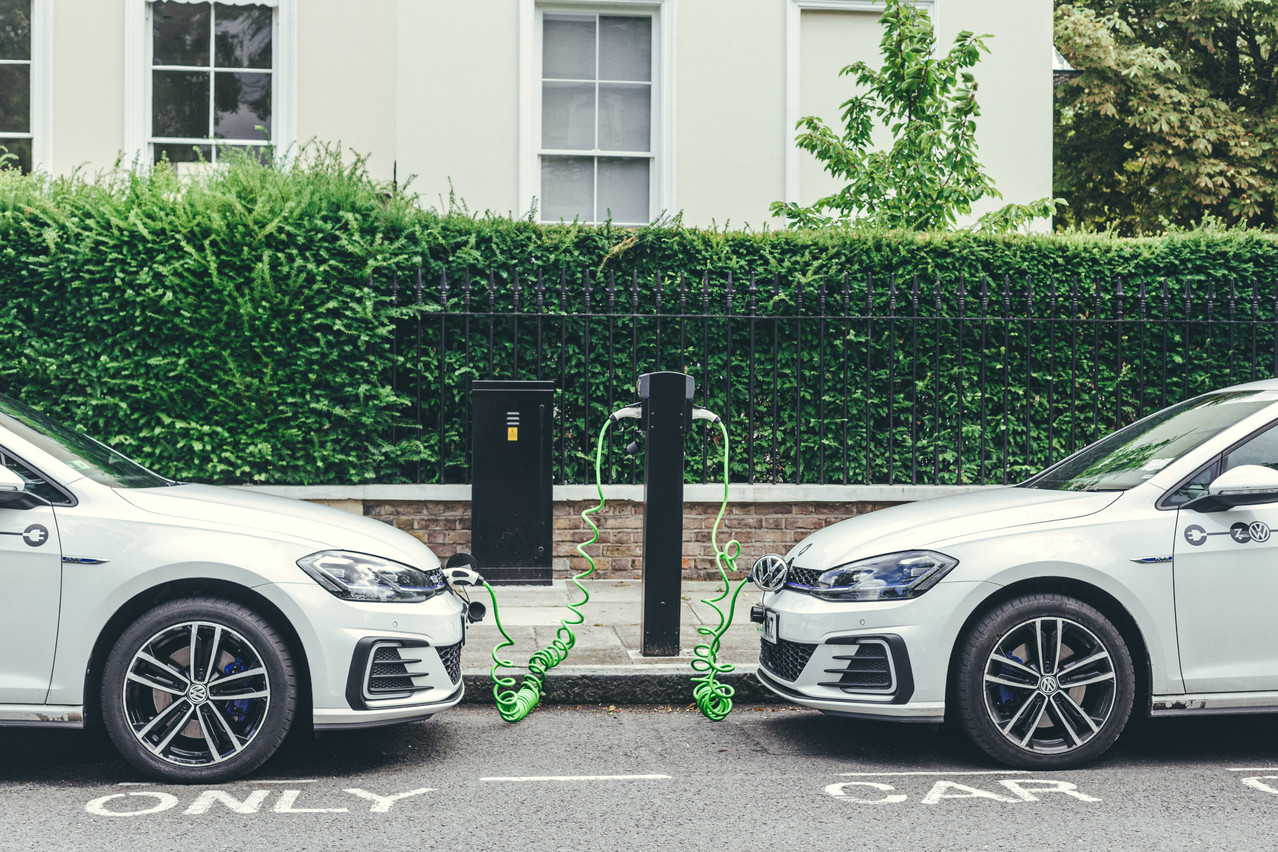Even though new registrations of fully electric cars jumped by 72% last year compared with 2022, such cars still--as of December 2023--make up just 15.7% of the total fleet in Luxembourg.
A large proportion--47.03%--of these are leased, which may play a role in these numbers: according to industry professionals interviewed by the Chamber of Commerce, “a large majority” of leased vehicles are sold abroad when their leases are up, meaning they are no longer counted as part of the national fleet.
Thanks to changes in tax scales concerning benefits-in-kind for company vehicles, and perhaps also public pressure on companies to advance policies that reduce their carbon footprints, company cars are more likely to be electric than private cars, the report also found.
Hitting environmental targets
Transportation accounts for about a quarter of CO2 emissions across the EU, a figure that, at 60.3%, is significantly higher in Luxembourg. This, at least in part, is down to the large volume of fuel sold to non-residents.
Luxembourg’s National Integrated Energy and Climate Plan (PNEC) seeks to reduce the country’s emissions by 62% by 2030 compared with 2019. To achieve this, 49% of the car fleet should go electric, not an easy task in a country with one of the highest cars-per-capita worldwide.
In other words, Luxembourg is going to have to speed things up if it is to comply with European requirements, which stipulate that, from 2035, no new vehicles emitting CO2 may be placed on the market.
There are two possible scenarios, says the Chamber of Commerce report. Either: “From 2024 onward, 30,000 new electric or plug-in hybrid vehicles need to be registered in Luxembourg annually--without any of the existing ones leaving the fleet.” Or: “From 2024 onward, 100% of the operational fleet of leased cars should be electric or plug-in hybrid, with an additional 22,000 electric cars or plug-in hybrids being registered each year among the fleet of private vehicles.”
These objectives currently look hard to hit: only 25,328 new electric or hybrid cars were registered in Luxembourg in 2023.
Still in transition
Today, carmakers are devoting big bucks to developing electric cars, but the transition isn’t complete. Ford, for example, has invested heavily in its electric offerings but still lacks enough market share to break even. According to the Chamber of Commerce report, Ford lost $36,000 per electric vehicle sold in 2023. The car giant therefore funds its investments via sales of internal combustion vehicles, but with these inevitably in decline they risk getting caught in the transition.
The report also quotes numbers from the Rocky Mountain Institute, a US energy research centre, suggesting that manufacturing costs for electric cars will, by 2030, fall by between $60 and $90 per kWh (making it half as costly as it is now).
In addition, the energy density of batteries is still improving, meaning more energy per kilo of battery weight. And 80% to 95% of battery materials can be recycled.
Nevertheless, dependence on certain materials--Chinese graphite, cobalt--to make batteries remains a concern for manufacturers.
International competition
In a European context, the arrival of American and Chinese manufacturers on these shores shouldn’t be taken lightly: the slightest loss of market share will undermine the industry and cost thousands of jobs.
The Luxembourg government has introduced a range of financial incentives both for the development of public and private charging infrastructure and for the purchase of vehicles (subject to certain conditions). It remains to be seen whether these measures will be extended--some are due to expire in June 2024--and whether new aid schemes such as social leasing for the most disadvantaged households will be introduced.
Read the Chamber of Commerce report (French only) .
This article in Paperjam. It has been translated and edited for Delano.
